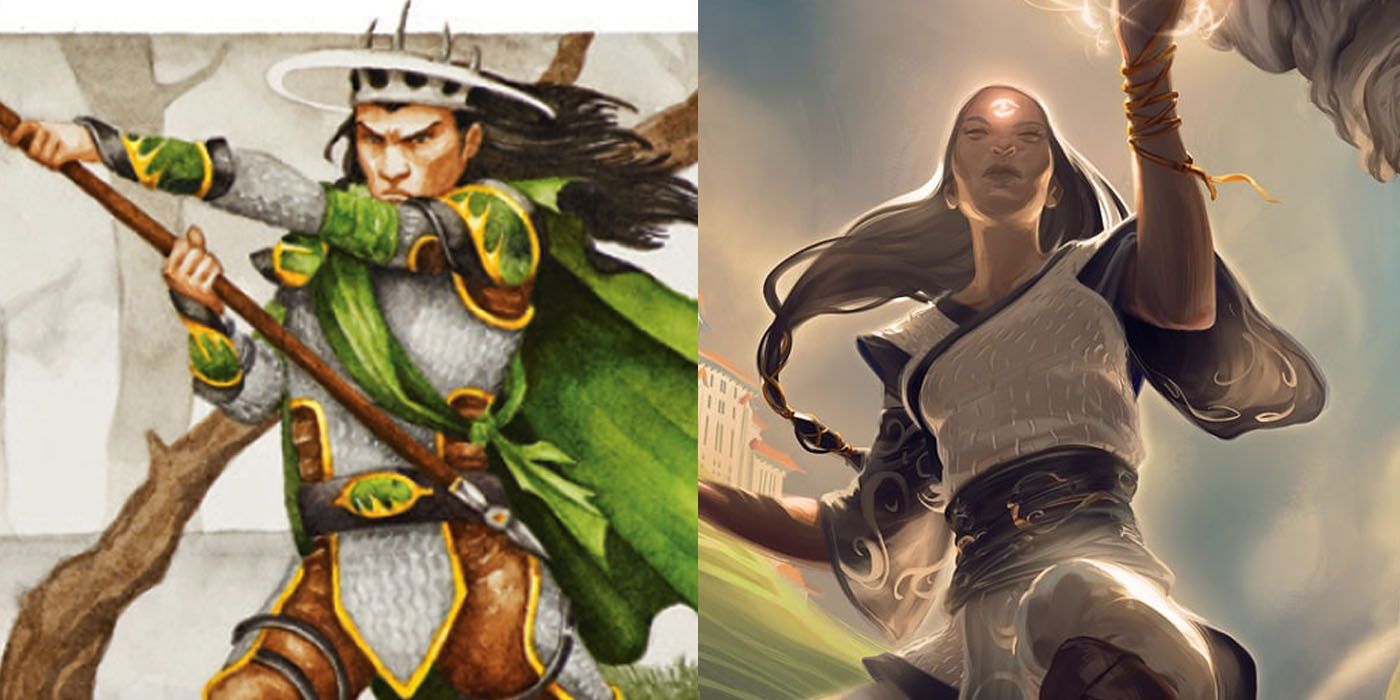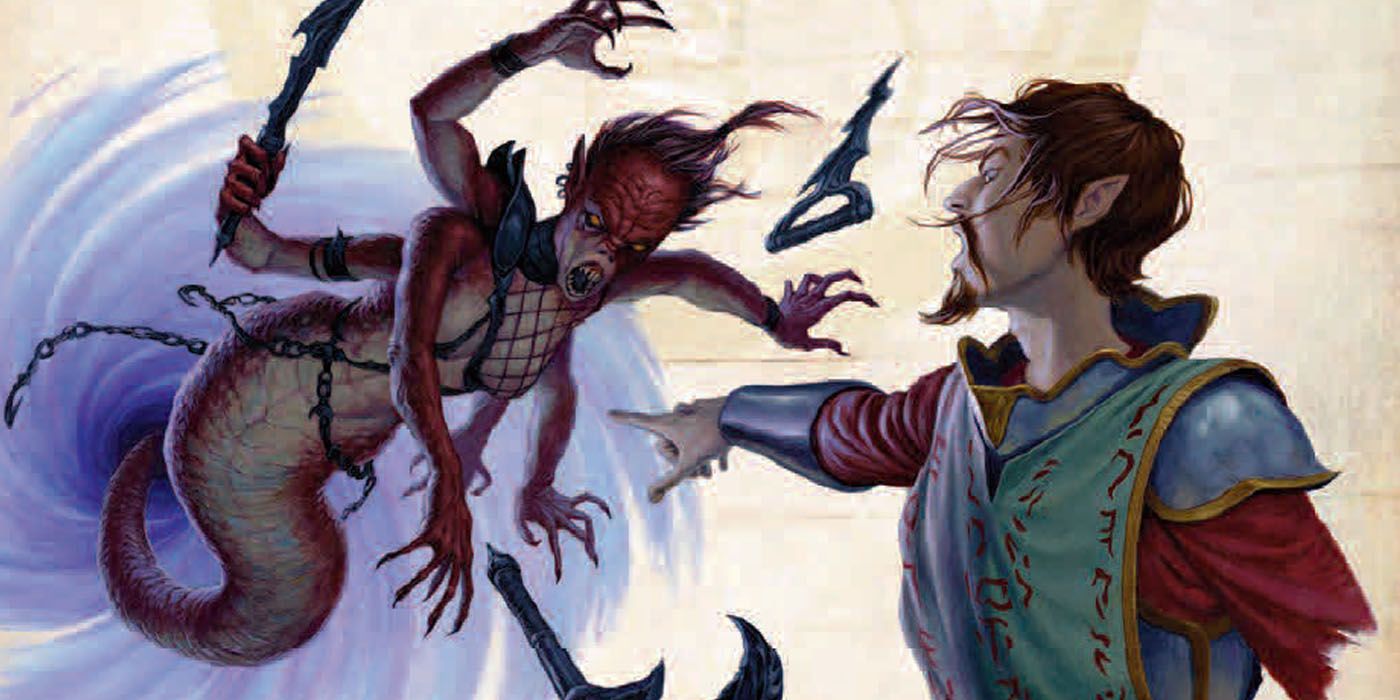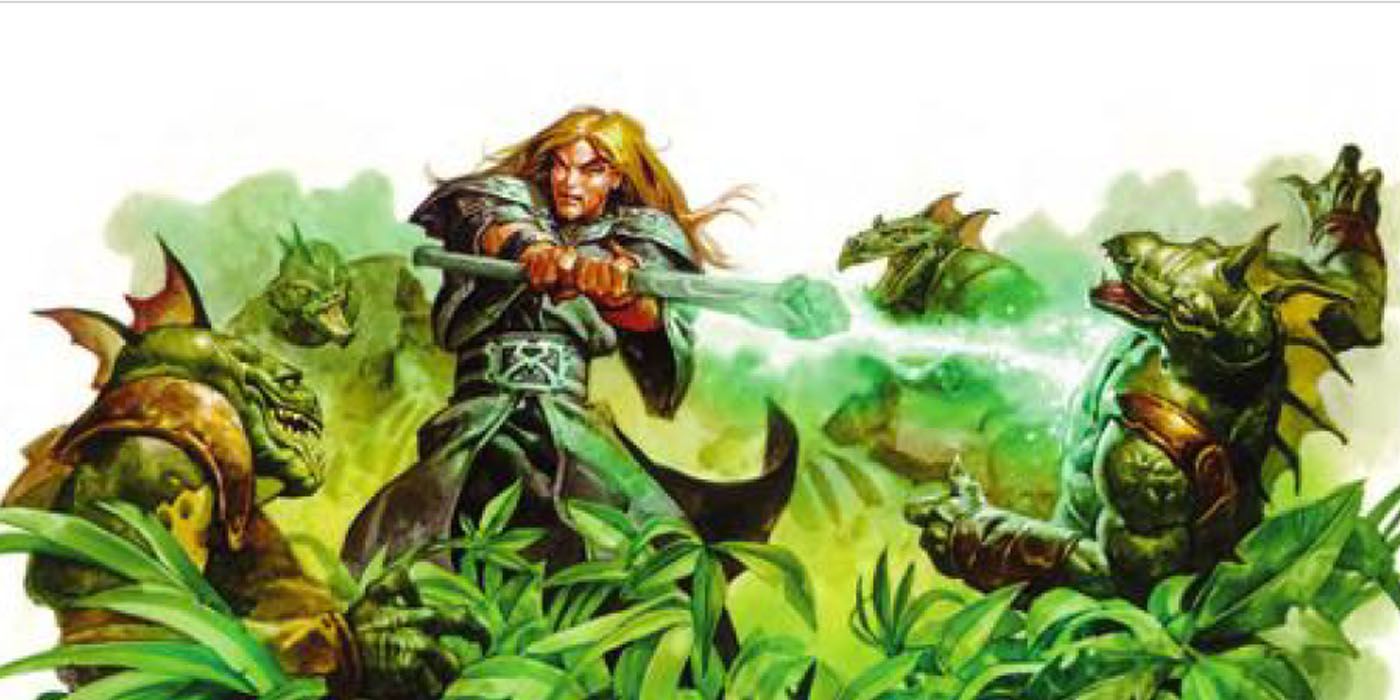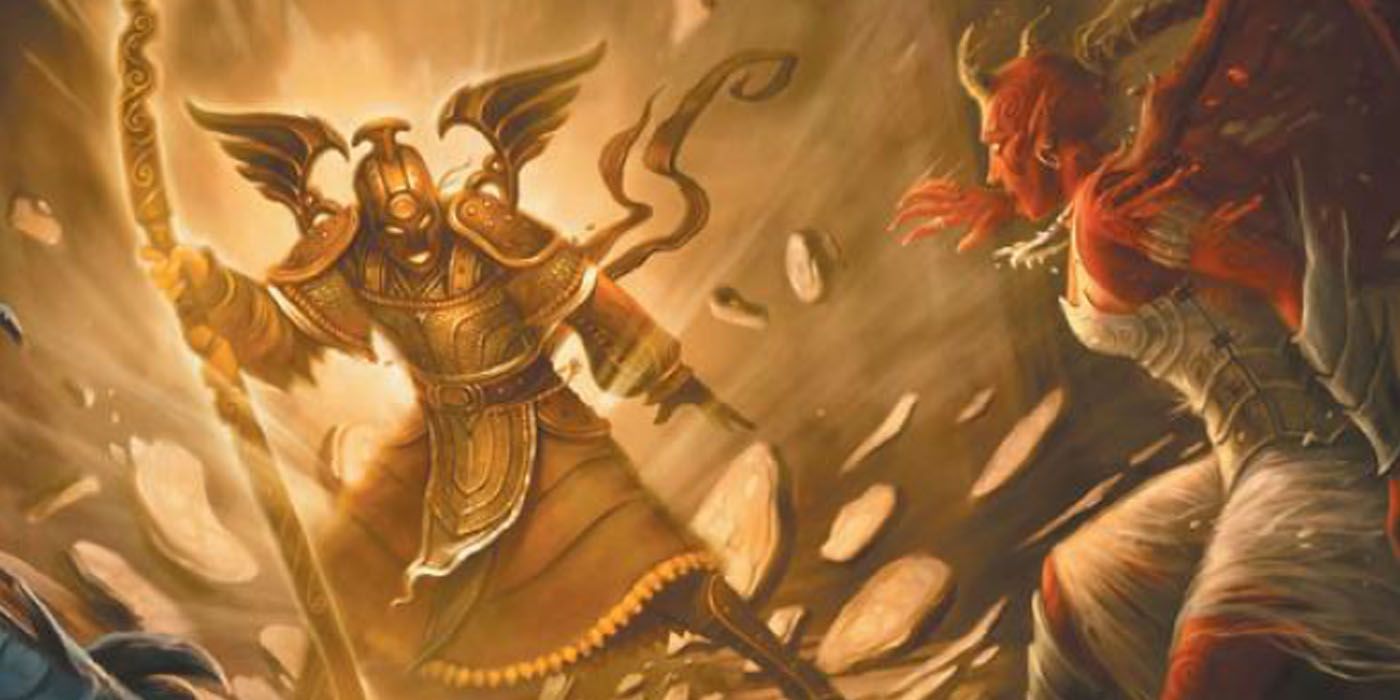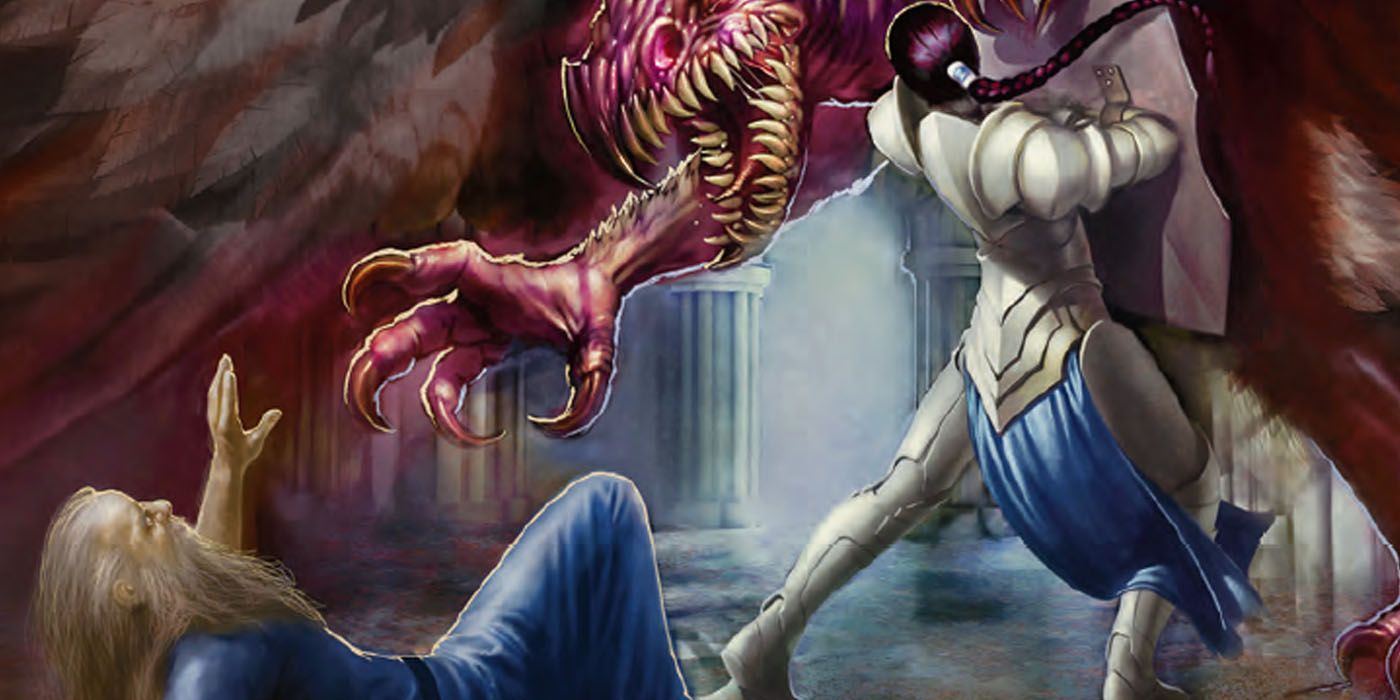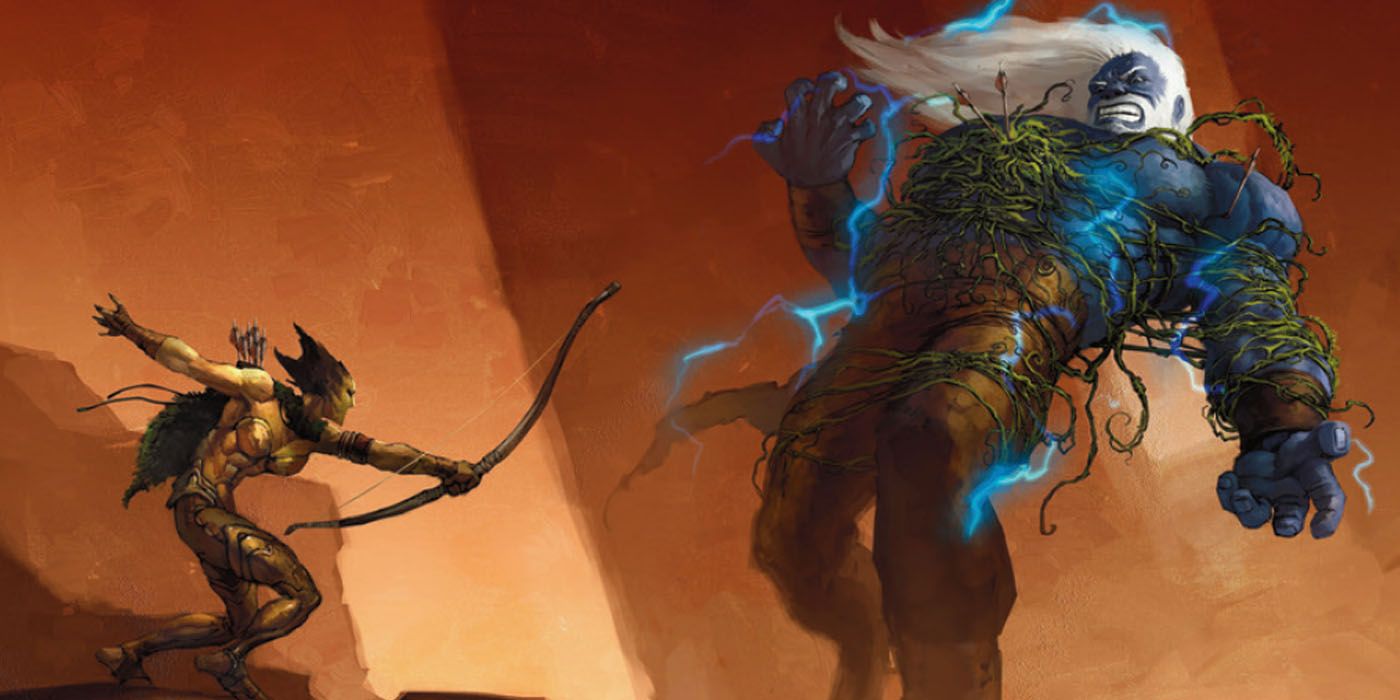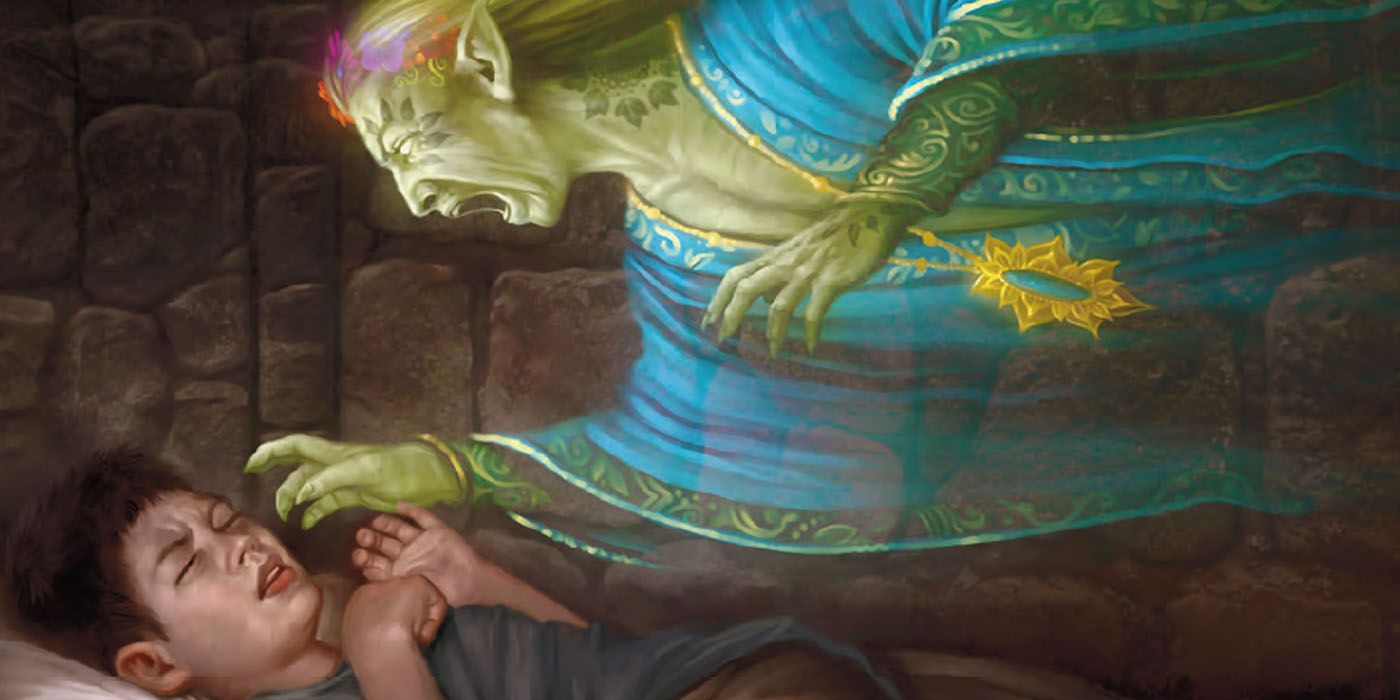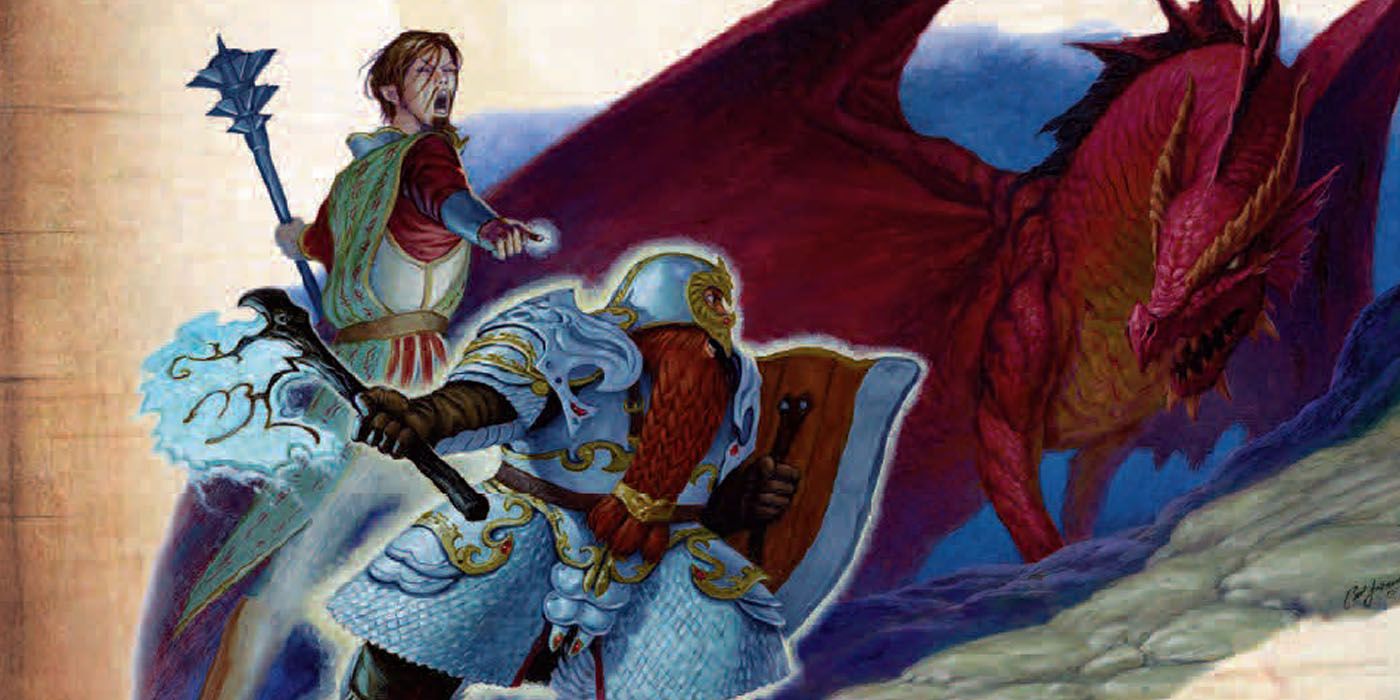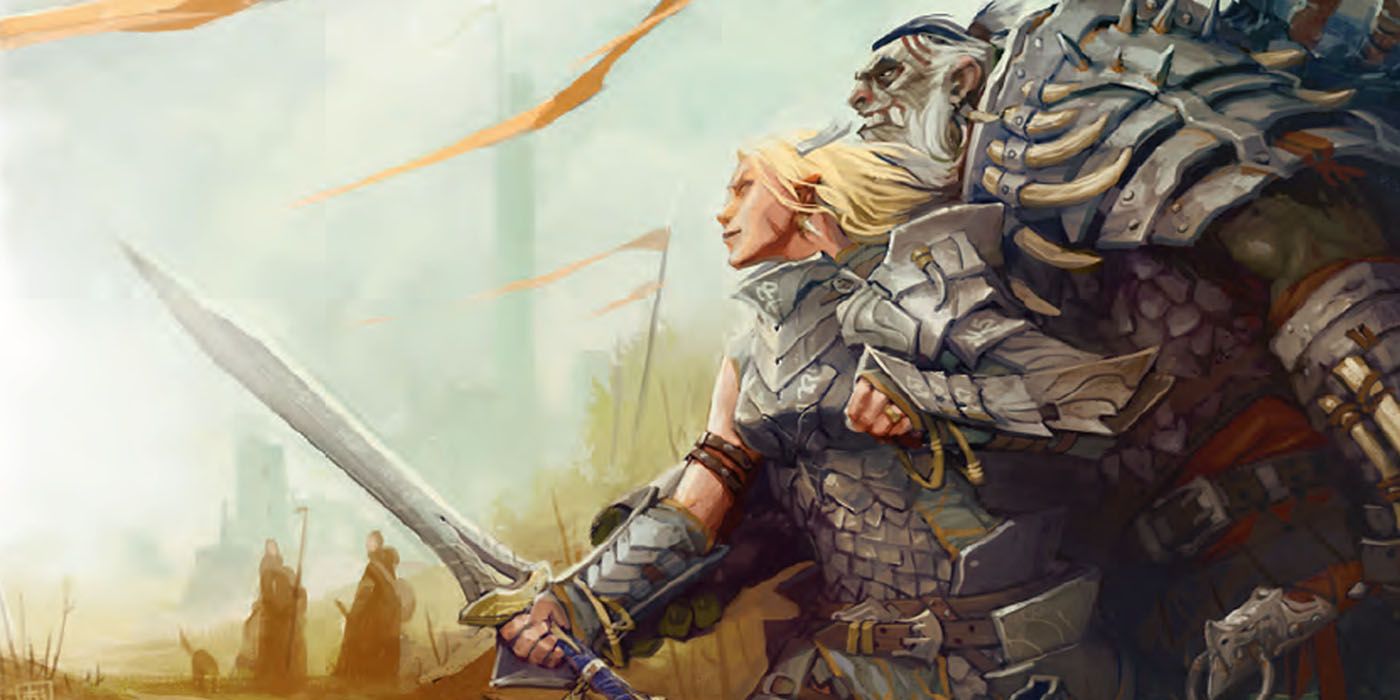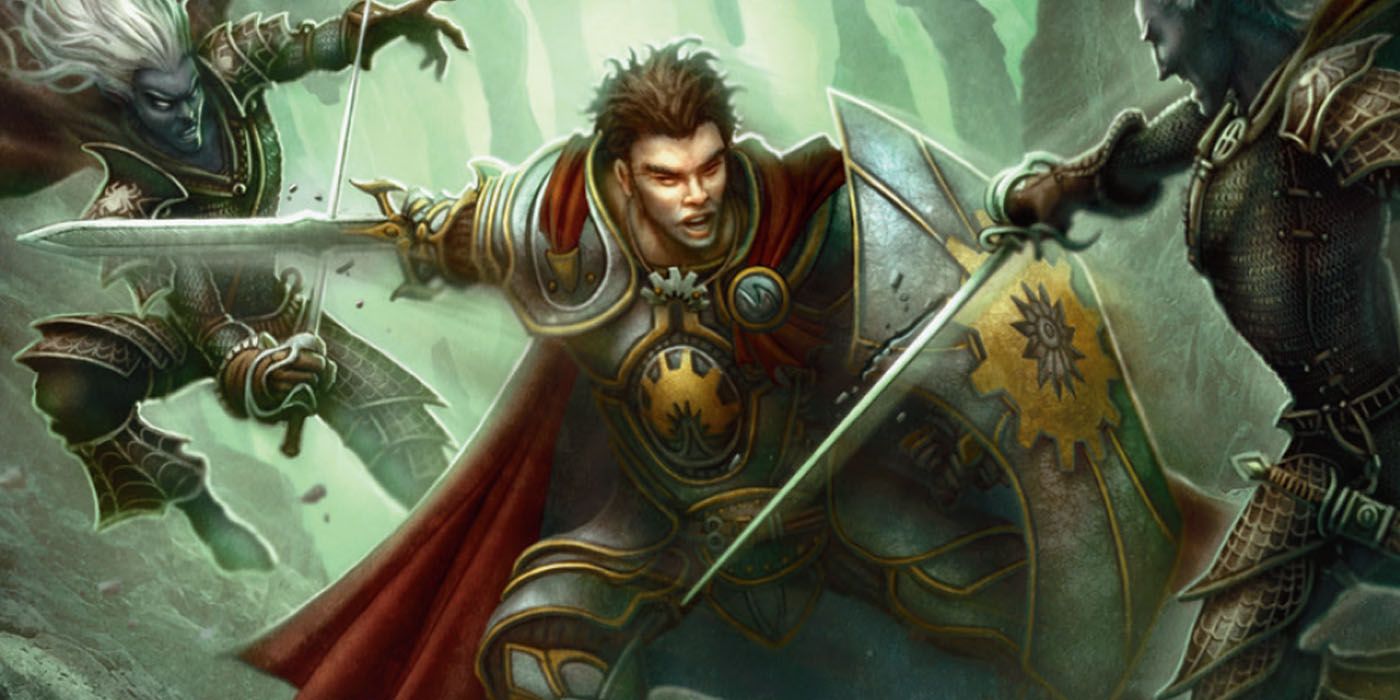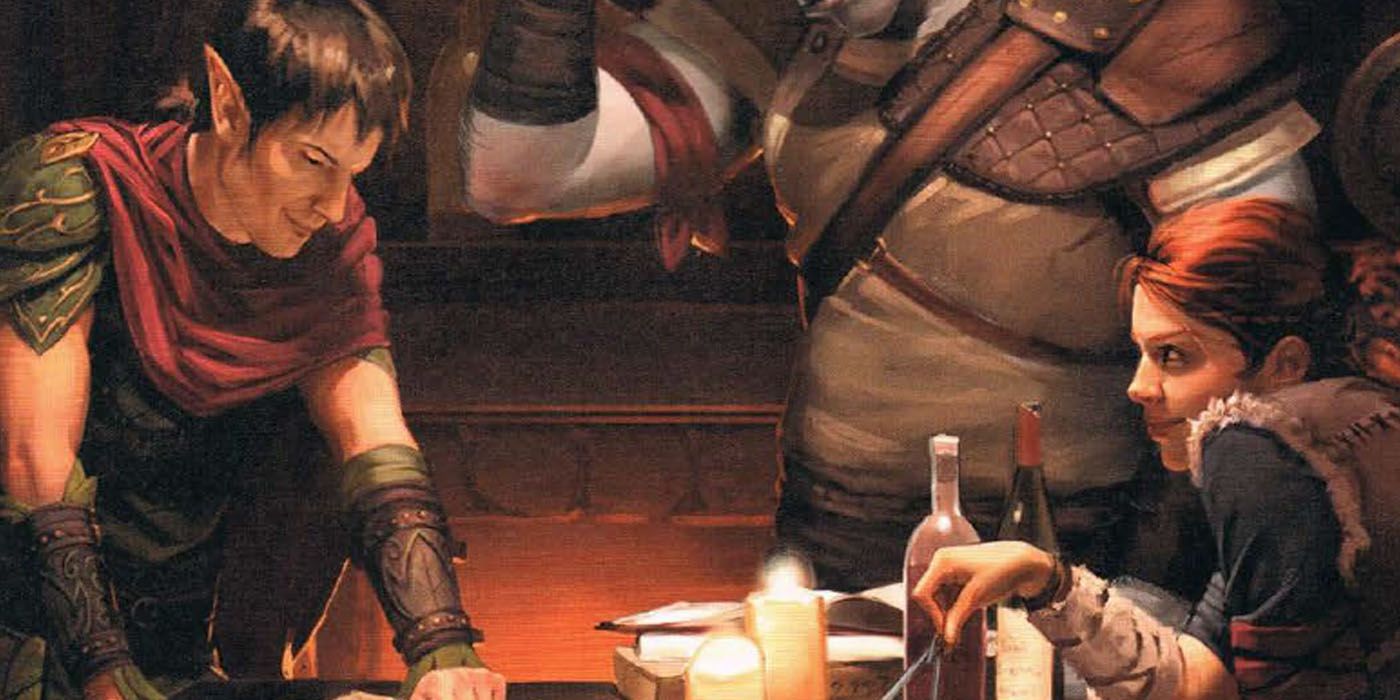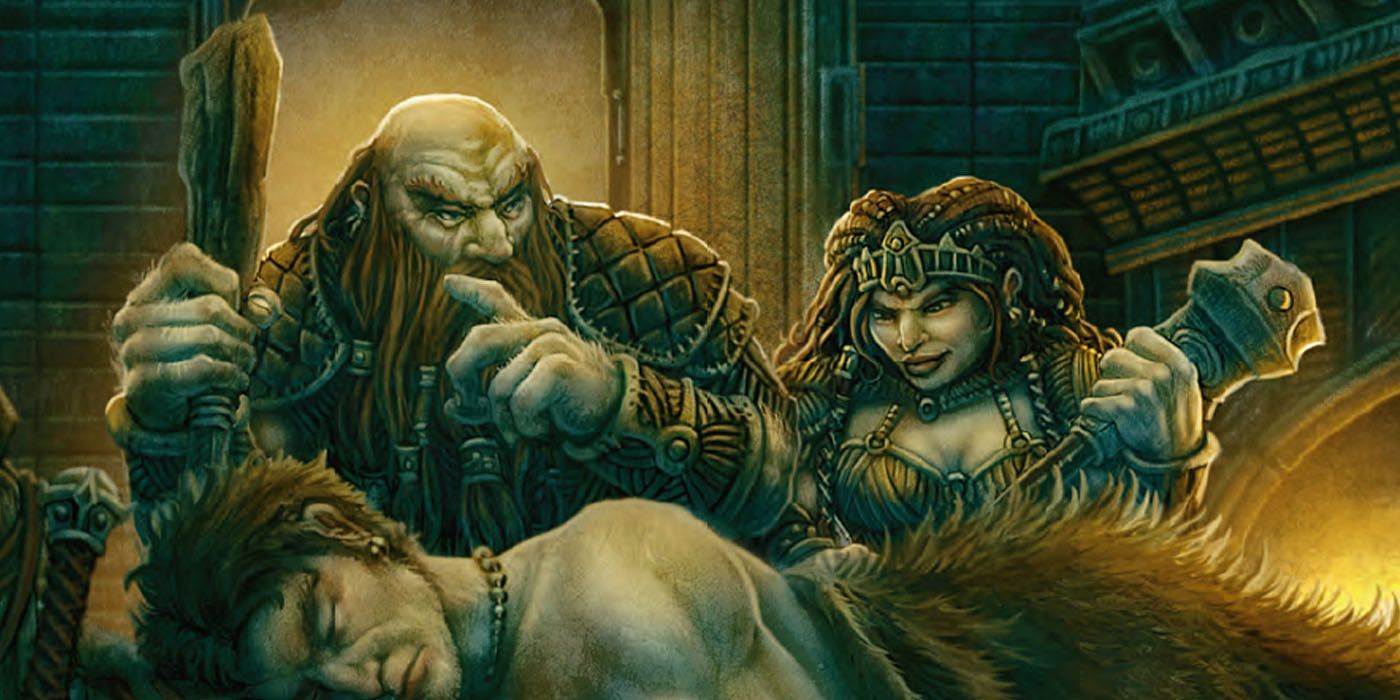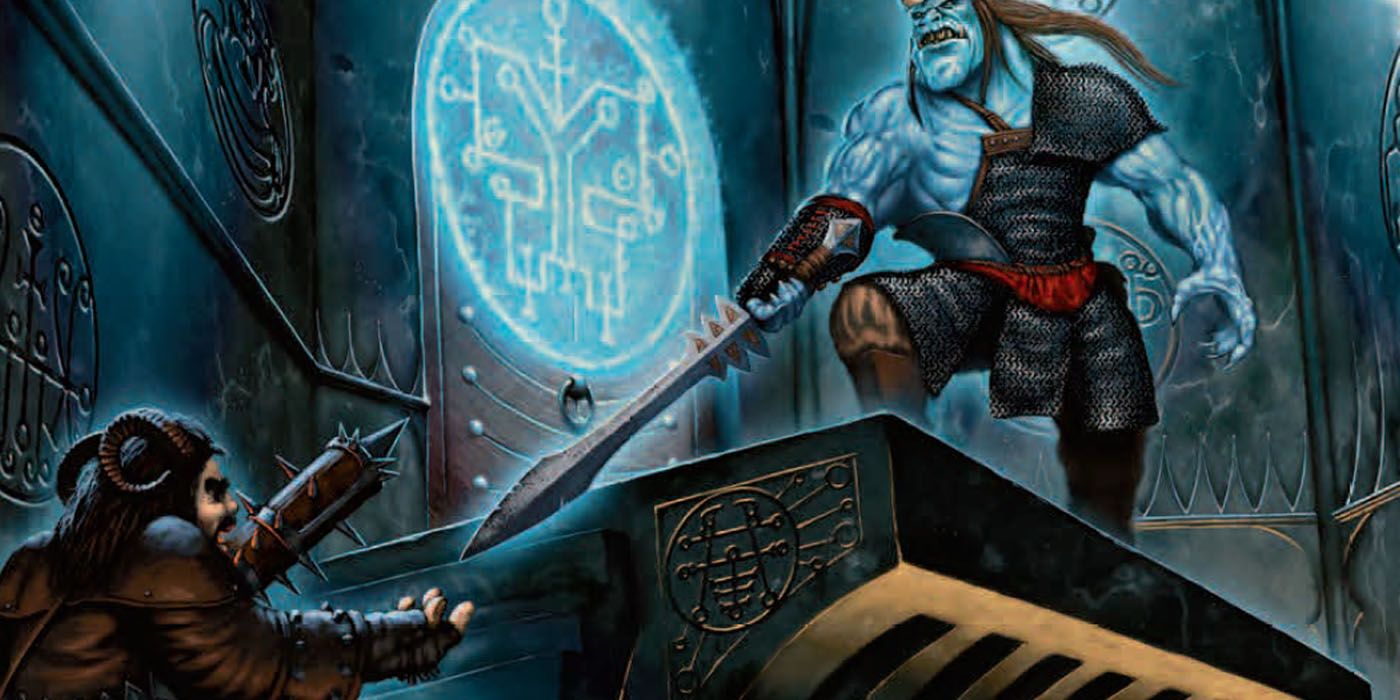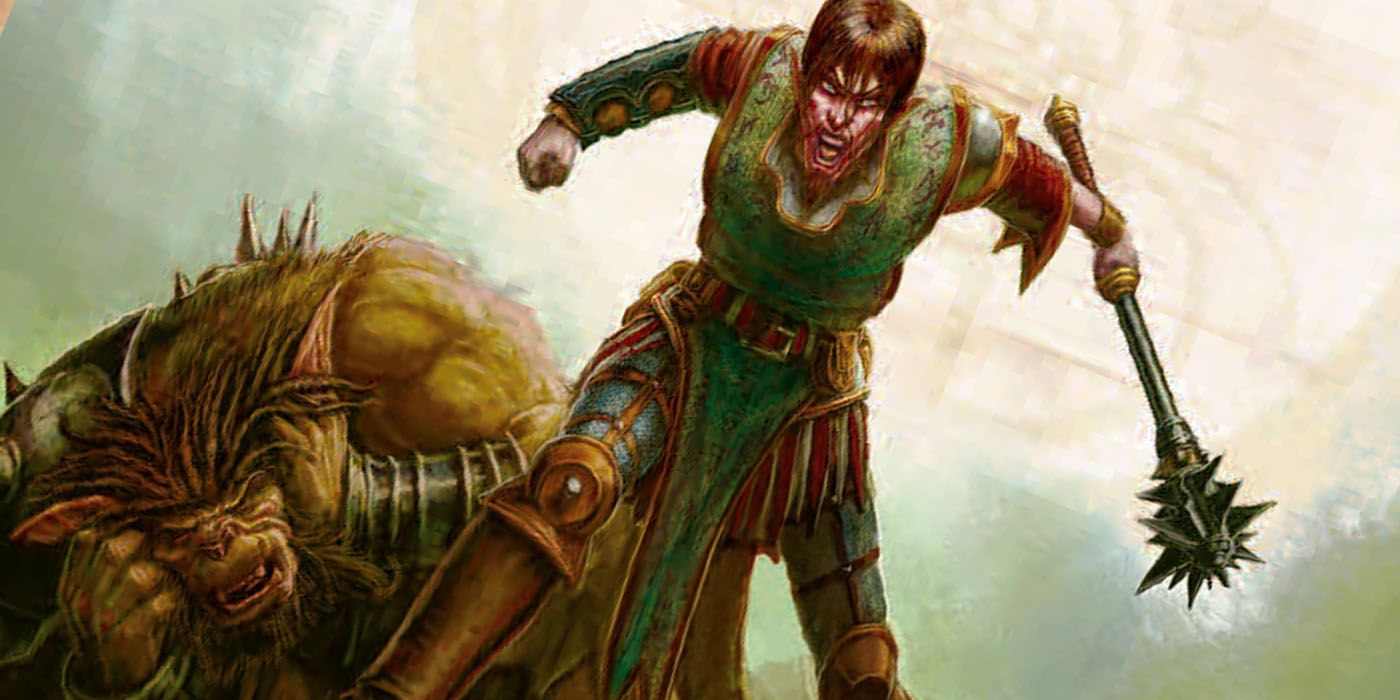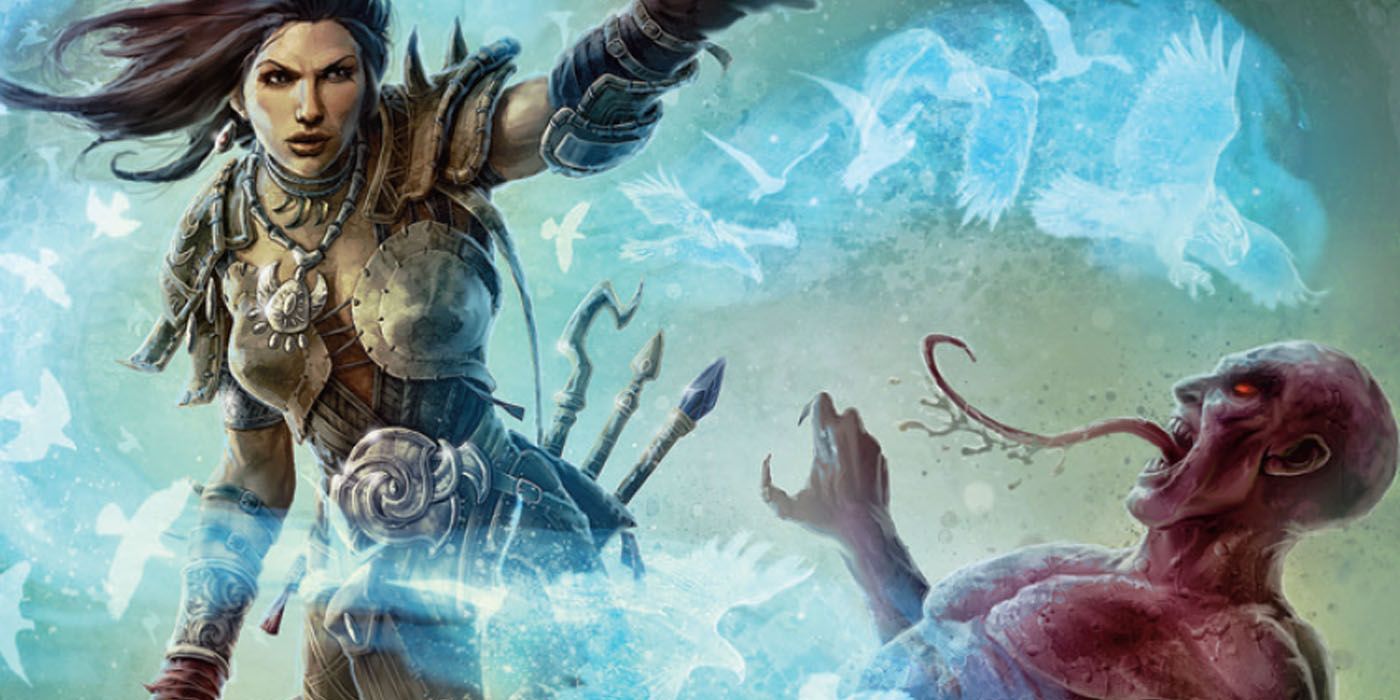Enchantment shows that magic has the capacity to touch lives without so much hurting anyone. In Dungeons & Dragons, the Enchantment School allows Spellcasters to beguile, entrance, or bewitch people with various effects. As such, enchanters can change the minds of the cruel or even charm people into doing their bidding.
Moreover, D&D 5e offers Spellcasters a great selection of Enchantment Spells to add to their toolkit of efficient utility Spells. In fact, some Enchantment Spells can add useful spice to otherwise ordinary role-playing sessions - where an Enchantment Spell can stop a deadly battle ahead.
Updated on May 4, 2022 by Rhenn Taguiam: With Critical Role having its third campaign underway, fans of the series can adapt the setting of Exandria into their own homebrew story courtesy of the newly-released book Critical Role: Call Of Netherdeep. The book contains not just a map and information about a new setting, but also information on NPCs, new Magic Items, and even unique ways players can interact with the world. Players who want to dominate in such a realm would probably need reliable Enchantment Spells to have other NPCs on their side. However, which exactly are the best Enchantment Spells that Spellcasters can use in their D&D 5e adventure?
15 Power Word: Kill (8th-Level)
- Casting Time | Duration: 1 Action | Instantaneous
- Range: 60ft
- Components: V
- Classes: Bard, Sorcerer, Warlock, Wizard
It’s not all the time that Spellcasters could even reach the point of attaining 8th-Level Spell Slots, but if they do, Power Word: Kill is easily a must-have Enchantment. This Spell (V) can affect anyone the Spellcaster sees within 60 feet, and with an Action can instantaneously compel them to die.
This has a caveat though, as this Spell only works against creatures with less than 100 Hit Points. Regardless, a lot of monsters in various Challenge Ratings have HPs less than 100, making them quite susceptible to Power Word: Kill. The only disadvantage here is that, if players can get a monster they want to kill to lower than 100 HP, chances are they can take the monster head-on without having to use this Spell.
14 Dominate Person (5th-Level)
- Casting Time | Duration: 1 Action | 1min (Concentration)
- Range: 60ft
- Components: V S
- Classes: Bard, Sorcerer, Wizard
Despite its simple name, Dominate Person (V, S) has to follow a lot of conditions in order to completely beguile its target within 60 feet. Aside from maintaining Concentration for up to a minute, the target needs to fail a Wisdom Save for this to work, and they have Advantage to the Save if they’re currently being fought.
However, Dominate Person works wonders if cast properly. If it succeeds in charming a target, it forges a telepathic link, provided the Spellcaster and the target remain in the same plane of existence. Until the Spell lasts, the beguiled creature can follow commands issued through this telepathic link, provided they’re possible to follow. At the cost of an Action, the player can even control the target fully.
13 Zone Of Truth (2nd-Level)
- Casting Time | Duration: 1 Action | 10mins
- Range: A 15-foot-radius sphere centered on a point of the player's choice within range
- Components: V S
- Classes: Bard, Cleric, Paladin
Perhaps the go-to tool of interrogators, the Zone of Truth (V, S) creates a magical zone that denies Deception within a 15-foot sphere centered from a point of the Spellcaster’s choosing. All creatures that enter the Zone must make a Charisma Save and, if they fail, cannot lie deliberately.
While the Spellcaster knows if the creature entering the Zone has failed or succeeded in their Save, creatures aware of the Zone’s existence can also simply avoid lying by deliberately trying to avoid questions they can respond to.
12 Crown Of Madness (2nd-Level)
- Casting Time | Duration: 1 Action | 1min (Concentration)
- Range: 120ft
- Components: V S
- Classes: Bard, Sorcerer, Warlock, Wizard
Quite a unique Spell rests within the Crown of Madness (V, S) as it affects a humanoid of the Spellcaster’s choice that is within 120 feet for as long as a minute, provided they focus on the Spell. That humanoid target must succeed in a Wisdom Save or become charmed by the Spellcaster, and as the Spell lasts, a crown of iron thorns appears on their head and their eyes glow a particular madness.
While charmed, the humanoid must use its action every turn to attack a creature other than itself before they move. The attacked creature can be chosen by the Spellcaster. The charmed creature can make a Wisdom Save at the end of a turn to fully resist the Spell.
11 Hex (1st-Level)
- Casting Time | Duration: 1 Bonus Action | 1 hour (Concentration)
- Range: 90ft
- Components: V S M
- Classes: Warlock
Of all Enchantment Spells in D&D 5e, it’s perhaps Hex (V, S, M) that is the most versatile. Performed through a Bonus Action, Hex can target a creature, and its effects can last up to an hour or even up to a day depending on the gravity of the Spell Slots used.
There is no Save for Hex targets, and they immediately suffer an additional 1d6 Necrotic Damage whenever the Spellcaster deals damage with an attack. Moreover, the target suffers Disadvantage on Ability Checks on an Ability chosen by the Spellcaster. When the Hex target dies while the Spell is ongoing, the Warlock can choose another target.
10 Synaptic Static (5th-Level)
- Casting Time | Duration: 1 Action | Instantaneous
- Range: 120ft
- Components: V S
- Classes: Bard, Sorcerer, Warlock, Wizard
Spellcasters with enough prowess can cause psychic energies to gather in an area and explode. Mechanically speaking, Synaptic Static works within a 20-foot radius as far as 120 feet from the caster. Creatures above Intelligence 2 must make an Intelligence Save, wherein 8d6 Psychic Damage is at stake upon a failure.
Moreover, targets who fail will have muddled thoughts for a minute. This means suffering a 1d6 penalty to all Ability Checks, Attack Rolls, and even Concentration Saves. While the Spell does take a while to learn, Synaptic Static is a worthwhile ability to get given the limited number of creatures who can even accommodate an Intelligence Save.
9 Bless (1st-Level)
- Casting Time | Duration: 1 Action | 1min (Concentration)
- Range: 30ft
- Components: V S M (and a sprinkle of holy water)
- Classes: Cleric, Paladin
Nothing's wrong with a blessing before a big task. With Bless, the caster's target can add a d4 bonus to all Saves and Attack Rolls throughout the duration of the Spell. Moreover, casting Bless with a higher-level Spell Slot lets casters have more targets.
Granted, a 1d4 might seem small at first. However, by the time party members get their Extra Attacks, Bless can turn the tide of battle. Of course, the damage output might not be as lethal to bosses, but the d4s can make a difference against a horde of opponents.
8 Heroism (1st-Level)
- Casting Time | Duration: 1 Action | 1min (Concentration)
- Range: Touch
- Components: V S
- Classes: Bard, Paladin
At its core, a Spellcaster can use Heroism to bring forth the inner hero in a companion. Mechanically, Heroism not only grants immunity against being frightened. Rather, the target gets Temporary HP equal to the Spellcaster's Ability Modifier. When used with higher-level Spell Slots, Heroism can target multiple creatures.
Despite the rather minuscule benefit of Heroism, it can help not just in the early game but in extreme emergencies as well. For instance, at 18 Charisma (+4 Spellcasting Ability Modifier), Heroism can help a target stave off up to 16 Damage if kept active for four rounds. Consider how Cure Wounds with the same Modifier can only heal up to 12 HP (1d8 + 4). In turn, sustained Heroism is much more practical as a defensive measure.
7 Compelled Duel (1st-Level)
- Casting Time | Duration: 1 Bonus Action | 1min (Concentration)
- Range: 30ft
- Components: V
- Classes: Paladin
When faced with injustice, a Paladin knows it's time to duel. With Compelled Duel, a Paladin can force a target to make a Wisdom Save. If they failed, the target will be forced to fight the Paladin. Throughout the duration, the target will get Disadvantage on Attack Rolls against targets aside from the Paladin. Moreover, they need to make a Wisdom Save whenever they try to move to a space more than 30 feet away from the Paladin.
Being the party's mainline defender, the Paladin can make great use of Compelled Duel to protect the party. In turn, Compelled Duel serves as a great threat mitigation tool to ensure that the Paladin gets to face the right target without risking the lives of teammates.
6 Suggestion (2nd-Level)
- Casting Time | Duration: 1 Action | 8hrs (Concentration)
- Range: 30ft
- Components: V M (in the form of a drop of sweet oil or a bit of honeycomb, alongside a snake's tongue)
- Classes: Bard, Sorcerer, Warlock, Wizard
With Suggestion, a Spellcaster can psychically nudge a target into doing anything within the realm of reason. The suggestions should also come in the form of a sentence or two of carefully-worded orders. If they fail a Wisdom Save, the creature will be compelled to do the suggested course of action throughout the entire duration.
Despite being too straightforward, Suggestion remains one of the most versatile Spells out there. With a helpful DM, Suggestion can greatly impact the state of play in a party. However, Spellcasters need to be mindful that they need to Concentrate on the Spell throughout its duration. This means its commands are best pursued outside combat.
5 Sleep (1st-Level)
- Casting Time | Duration: 1 Action | 1min
- Range: 90ft
- Components: V S M (and a cricket, rose petals, or a pinch of fine sand)
- Classes: Bard, Sorcerer, Wizard
Who would've thought forcing enemies into a deep slumber could deal so much damage? Thanks to Sleep, a low-level Spellcaster - or even a high-level magical savant - can dismantle hordes of creatures.
Essentially, the caster needs to roll 5d8 to determine the total HP the Spell can affect (average of 22.5 HP). Sleep will force creatures within 20ft of the caster to fall asleep, starting from those with the lowest HP and above. Afterward, the player will subtract the creature's HP from the total HP, and move in ascending order until there's no total HP left in the pool. The caveat here is that Sleep only affects creatures that have equal or less HP than the total in the tool.
Given the low average HP, this Spell easily won't work against higher-level opponents. However, the party may also find a way to debilitate enemy numbers and use Sleep as an instant area-wide finisher.
4 Enemies Abound (3rd-Level)
- Casting Time | Duration: 1 Action | 1min (Concentration)
- Range: 120mins
- Components: V S
- Classes: Bard, Sorcerer, Warlock, Wizard
Ever been so confused in combat that one can't distinguish friend from foe? Enemies Abound will accomplish exactly that. When cast, the target must succeed an Intelligence Save or risk losing the ability to identify its allies. For the entire duration of the Spell, this target will treat everything as enemies. It can only try to stop its rampage with another Intelligence Save, prompted every time it takes damage.
What's horrifying about Enemies Abound is that the targeted creature must attack the creatures nearest to it at all costs. Moreover, it's compelled to make Opportunity Attacks whenever possible. Considering that many opponents have low Intelligence Modifiers, using this against a powerful-enough enemy can obliterate their own ranks while players watch.
3 Vicious Mockery (Cantrip)
- Casting Time | Duration: 1 Action | Instantaneous
- Range: 60ft
- Components: V
- Classes: Bard, Sorcerer, Warlock, Wizard
When cast, Vicious Mockery releases insults imbued with enchantments towards a target. The unfortunate target doesn't need to understand the caster, for as long as it can hear the words. This target will be prompted to do a Wisdom Save or else take 1d4 Psychic Damage. However, where Vicious Mockery shines is with its effect - wherein a target that fails the Wisdom Save gets Disadvantage to its next Attack Roll.
Vicious Mockery doesn't hold the status of being the most iconic Bard Spell for nothing. Aside from its mechanical benefits, it has a lot of unique flavor to it. Moreover, its poor damage is easily counteracted by its extremely useful debuff.
2 Dissonant Whispers (1st-Level)
- Casting Time | Duration: 1 Action | Instantaneous
- Range: 60ft
- Components: V
- Classes: Bard
A Bard using Dissonant Whispers will release a horrible melody that only its target can hear. That target must succeed a Wisdom Save or risk getting 3d6 Psychic Damage. Dissonant Whispers hurts too much, in fact, that a target who fails the Save will have to use its Reaction to get as far away from the Bard as possible.
Due to its accessibility, Dissonant Whispers is a great method of dealing with bosses and other elite foes. Moreover, given its verbal-only component, Dissonant Whispers can be a great way to escape tight situations.
1 Mind Sliver (Cantrip)
- Casting Time | Duration: 1 Action | Instantaneous
- Range: 60ft
- Components: V
- Classes: Sorcerer, Warlock, Wizard
With Mind Sliver, a Spellcaster will release a discordant psychic energy trail that hits the mind of a visible target. They need to succeed an Intelligence Save or risk getting 1d6 Psychic Damage. On top of this, they also get a 1d4 penalty to their next Saving Throw before the end of the caster's next turn. Moreover, Mind Sliver scales in damage at certain level, for a whopping 4d6 Damage at 17th Level.
At its core, Mind Sliver works great as a Cantrip due to its debuff. Despite its small damage, a lot of creatures don't have decent Intelligence Modifiers. This means they'll likely fail Mind Sliver's effect and get penalized in their Saves.
Critical Role: Call Of Netherdeep was released on March 15, 2022 and will provide more information about the popular Critical Role setting of Exandria. Set in Ank’Harel, Call of Netherdeep offers unique monsters, Magic Items, and even mechanics for setting up rivals for the player characters.

